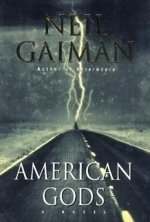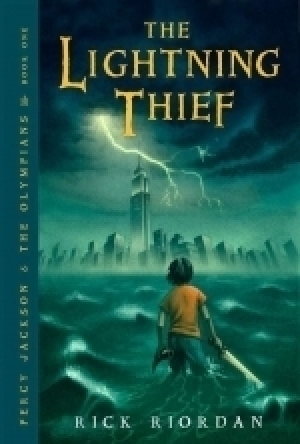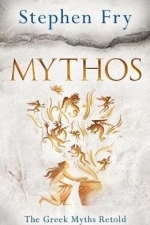Search
Search results
Hadley (567 KP) rated American Gods in Books
Jun 5, 2020
Mad Sweeney (1 more)
Gaiman's writing and descriptions
No character development (2 more)
Dehumanizes women
The ending
The gods of the old world still exist in Neil Gaiman's 2001 novel "American Gods."
A science fiction/ fantasy story set in today's America, American Gods tries to answer the question of what happens when people stop believing in the past gods, and start worshiping new ones?
Shadow is our main character, who we meet while he's attempting to get released from prison after three years of incarceration - - - afterall, he has a job, wife and life waiting for him on the outside. And even though he's built up a strong exterior while in prison, everything comes crashing down after he receives news that his wife and best friend have died in a car accident.
Cue Wednesday, an old, odd man who gives Shadow a job after his release from prison - - - with strings attached: Shadow can't ask any questions, he must protect his employer at all costs, and if people need to be hurt, he must hurt them. Although Wednesday doesn't tell him exactly what is going on, Shadow agrees to his duties and begins a road trip with the eccentric old man, meeting an array of colorful characters along the way. But soon, Shadow begins to realize that his employer may be a mythical god in disguise, yet, oddly Shadow never really questions it or anything in the entire book for that matter.
The novel takes an odd turn early on when Shadow's dead wife, Laura, comes back to life in a zombified way. While Shadow is staying in a cheap hotel room, and Wednesday sharing a room with a young hotel employee in another, Shadow sees his wife in the clothing she was buried in, but he doesn't flinch - - - he carries a very calm conversation with dead Laura, he even goes down to the lobby to buy her a pack of cigarettes, and the next morning, he still doesn't seem bothered by it when he sees her muddy footprints on the floor. Wednesday tries to convince Shadow it was a dream, but makes snarky remarks that tells Shadow that even he knows it wasn't a dream. The two simply move on on their road trip, no questions asked.
But during this road trip, Shadow's suspicions are confirmed. He gets to see not only Wednesday, but two others in their true god-form, and afterwards, Wednesday confirms that he is indeed the Norse god, Odin.
Gaiman's take on mythological gods living in today's society is interesting, but disappointing. From recognizable gods to the forgotten ones, readers with a liking to history would probably enjoy this story most.
American Gods centers on the question of what happens to gods when they are no longer worshipped, and Gaiman merely focuses on male gods, while making all female characters (gods and humans) either prostitutes and/or sexual objects which is really off-putting for me as a female reader. And Gaiman's character development in the novel for gods and humans is nowhere to be seen thus lending very little plot development that is actually believable or enjoyable. I was unable to bring myself to care about our main character, Shadow, nor the plight with his zombie wife.And speaking of Laura, the disappointing character traits makes her not just unlikable, but also an unnecessary character overall.
I just can't recommend this book: the novel is good for the first 100 pages, but you could easily skip the next 450 pages that is just filler, and not miss much of the story. Gaiman also dehumanizes women, introduces characters in a way that would make them seem an important part of the story to only drop them out of it as quickly as they came in, and the ending is just a huge disappointment. All in all, Gaiman had a great idea, but the execution he used was poorly done - - - some parts even seem like Gaiman wrote them in a completely different state of mind, contradicting story lines and character traits altogether.
I did, however, have three favorite characters that weren't utilized enough for me to rate the story higher than I have: Mad Sweeney, Ibis and Jacquel. Mad Sweeney is a giant leprechaun that can pull gold coins out of the air; Ibis and Jacquel are Anubis and Jackel from Egyptian mythology, who run a funeral home in Cairo, Illinois today.
American Gods takes place only over a few months, which is surprising with how long the novel is. But the story is a buildup with no climax. Most characters come and go before readers can even decide if they like them or not,and that paired up with severe lack of character development leaves most of the main characters pretty forgettable. With this special edition containing 1200 more words, the story is still not worth it in the end. Gaiman is still a great writer, but this is not the book to recommend to anyone who wants to begin reading his work.
A science fiction/ fantasy story set in today's America, American Gods tries to answer the question of what happens when people stop believing in the past gods, and start worshiping new ones?
Shadow is our main character, who we meet while he's attempting to get released from prison after three years of incarceration - - - afterall, he has a job, wife and life waiting for him on the outside. And even though he's built up a strong exterior while in prison, everything comes crashing down after he receives news that his wife and best friend have died in a car accident.
Cue Wednesday, an old, odd man who gives Shadow a job after his release from prison - - - with strings attached: Shadow can't ask any questions, he must protect his employer at all costs, and if people need to be hurt, he must hurt them. Although Wednesday doesn't tell him exactly what is going on, Shadow agrees to his duties and begins a road trip with the eccentric old man, meeting an array of colorful characters along the way. But soon, Shadow begins to realize that his employer may be a mythical god in disguise, yet, oddly Shadow never really questions it or anything in the entire book for that matter.
The novel takes an odd turn early on when Shadow's dead wife, Laura, comes back to life in a zombified way. While Shadow is staying in a cheap hotel room, and Wednesday sharing a room with a young hotel employee in another, Shadow sees his wife in the clothing she was buried in, but he doesn't flinch - - - he carries a very calm conversation with dead Laura, he even goes down to the lobby to buy her a pack of cigarettes, and the next morning, he still doesn't seem bothered by it when he sees her muddy footprints on the floor. Wednesday tries to convince Shadow it was a dream, but makes snarky remarks that tells Shadow that even he knows it wasn't a dream. The two simply move on on their road trip, no questions asked.
But during this road trip, Shadow's suspicions are confirmed. He gets to see not only Wednesday, but two others in their true god-form, and afterwards, Wednesday confirms that he is indeed the Norse god, Odin.
Gaiman's take on mythological gods living in today's society is interesting, but disappointing. From recognizable gods to the forgotten ones, readers with a liking to history would probably enjoy this story most.
American Gods centers on the question of what happens to gods when they are no longer worshipped, and Gaiman merely focuses on male gods, while making all female characters (gods and humans) either prostitutes and/or sexual objects which is really off-putting for me as a female reader. And Gaiman's character development in the novel for gods and humans is nowhere to be seen thus lending very little plot development that is actually believable or enjoyable. I was unable to bring myself to care about our main character, Shadow, nor the plight with his zombie wife.And speaking of Laura, the disappointing character traits makes her not just unlikable, but also an unnecessary character overall.
I just can't recommend this book: the novel is good for the first 100 pages, but you could easily skip the next 450 pages that is just filler, and not miss much of the story. Gaiman also dehumanizes women, introduces characters in a way that would make them seem an important part of the story to only drop them out of it as quickly as they came in, and the ending is just a huge disappointment. All in all, Gaiman had a great idea, but the execution he used was poorly done - - - some parts even seem like Gaiman wrote them in a completely different state of mind, contradicting story lines and character traits altogether.
I did, however, have three favorite characters that weren't utilized enough for me to rate the story higher than I have: Mad Sweeney, Ibis and Jacquel. Mad Sweeney is a giant leprechaun that can pull gold coins out of the air; Ibis and Jacquel are Anubis and Jackel from Egyptian mythology, who run a funeral home in Cairo, Illinois today.
American Gods takes place only over a few months, which is surprising with how long the novel is. But the story is a buildup with no climax. Most characters come and go before readers can even decide if they like them or not,and that paired up with severe lack of character development leaves most of the main characters pretty forgettable. With this special edition containing 1200 more words, the story is still not worth it in the end. Gaiman is still a great writer, but this is not the book to recommend to anyone who wants to begin reading his work.
Rachel King (13 KP) rated American Gods in Books
Feb 11, 2019
I have only ever read one other adult book ( I don't count Coraline) by Gaiman, which was vastly different from this book in both style and mood - Stardust. A friend recommended I read this book many years ago since I like mythology. I found this book really had not much to do with mythology in the classic sense. Instead the characters that were pulled from mythology, such as Odin, Anansi, Horus, Bast, and Ganesha, among others, behaved like has-been D-list celebrities that struggle to survive in a country that is repeatedly described as "...a bad land for gods." The powers they rarely put on display were minimal and amounted to the same kind of "magic" as a skilled pick-pocket, con-artist, or amateur magician. The few times any real power is observed is once during the sexual scene of a re-invented Queen of Sheba (I'll spare you the R-rated details) and when the gods travel "behind the scenes," a state of existence that only the gods can enter.
While the names of classical mythology fit into the category of the Old Gods, there are New Gods that have taken root in America, born from cultural obsessions that have evolved and devolved over the years, such as railroads - a man dressed as a railroad conductor, television - a voice talking through Lucille Ball on a rerun of I Love Lucy, vehicles - stocky men that seemed to resemble vehicles themselves, and internet - a short, nerdy, nervous kid, among other American fixations and stereotypes.
In addition, one of the scenic devices used throughout the plot is what Gaiman's characters describe as places of power - side-of-the-road dives that road-trippers visit for no apparent reason, such as a place boasting the largest doll collection in America or the biggest wheel of cheese. And no, Disneyworld is not one of them.
One of the things I found interesting about this Gaiman-born world is that the Old Gods only exist in the New World when regular people travel from other countries and bring their memories and practices with them, even when they don't intend to stay themselves. The gods are "born" from these average people, and even though they can be killed by others, they don't die otherwise, but instead alternately starve or thrive based on the behavior of the people who live and die in the New World. They all have counterpart manifestations of themselves in the countries they are pulled from, but one's existence does not affect the other - though they do seem to be aware of each other.
All of this is merely the background of the main plot, which centers around the activities and travels of a seemingly mortal man with a single name, Shadow. I never did "get" the one-name thing, but whatever. Through Shadow's narration, the reader learns of an impending storm - a battle between the Old Gods and New Gods, the former fighting for survival and the latter fighting for dominance. Shadow works for a mysterious "Mr. Wednesday" and is randomly haunted by his dead wife, Laura, but otherwise seems to have little drive of his own for most of the book. In fitting irony, he has his own brand of "magic" - an obsession for coin tricks to pass the time from his days spent in prison - which I could never really follow the descriptions of.
To be completely honest, I truly did enjoy this book, though I am struggling to say exactly why. Perhaps I was fascinated by the "shadowy" way that Gaiman told the story, or how he developed this over-the-hill world of gods and goddesses that better resembled America's middle and poor classes' struggles for survival, money, and influence. Some of the personal touches that Shadow's character added to the plot made him at times surprisingly endearing. In addition, the way that Shadow seemed to address the reader at the very end of the book was so satisfying that I laughed out loud and had to read it again several times. Something about that just brought the book to life for me and help me to fully appreciate the versatile style of Gaiman. This is one of those books you don't have to fully understand to fully appreciate.
While the names of classical mythology fit into the category of the Old Gods, there are New Gods that have taken root in America, born from cultural obsessions that have evolved and devolved over the years, such as railroads - a man dressed as a railroad conductor, television - a voice talking through Lucille Ball on a rerun of I Love Lucy, vehicles - stocky men that seemed to resemble vehicles themselves, and internet - a short, nerdy, nervous kid, among other American fixations and stereotypes.
In addition, one of the scenic devices used throughout the plot is what Gaiman's characters describe as places of power - side-of-the-road dives that road-trippers visit for no apparent reason, such as a place boasting the largest doll collection in America or the biggest wheel of cheese. And no, Disneyworld is not one of them.
One of the things I found interesting about this Gaiman-born world is that the Old Gods only exist in the New World when regular people travel from other countries and bring their memories and practices with them, even when they don't intend to stay themselves. The gods are "born" from these average people, and even though they can be killed by others, they don't die otherwise, but instead alternately starve or thrive based on the behavior of the people who live and die in the New World. They all have counterpart manifestations of themselves in the countries they are pulled from, but one's existence does not affect the other - though they do seem to be aware of each other.
All of this is merely the background of the main plot, which centers around the activities and travels of a seemingly mortal man with a single name, Shadow. I never did "get" the one-name thing, but whatever. Through Shadow's narration, the reader learns of an impending storm - a battle between the Old Gods and New Gods, the former fighting for survival and the latter fighting for dominance. Shadow works for a mysterious "Mr. Wednesday" and is randomly haunted by his dead wife, Laura, but otherwise seems to have little drive of his own for most of the book. In fitting irony, he has his own brand of "magic" - an obsession for coin tricks to pass the time from his days spent in prison - which I could never really follow the descriptions of.
To be completely honest, I truly did enjoy this book, though I am struggling to say exactly why. Perhaps I was fascinated by the "shadowy" way that Gaiman told the story, or how he developed this over-the-hill world of gods and goddesses that better resembled America's middle and poor classes' struggles for survival, money, and influence. Some of the personal touches that Shadow's character added to the plot made him at times surprisingly endearing. In addition, the way that Shadow seemed to address the reader at the very end of the book was so satisfying that I laughed out loud and had to read it again several times. Something about that just brought the book to life for me and help me to fully appreciate the versatile style of Gaiman. This is one of those books you don't have to fully understand to fully appreciate.
Alyssa (0 KP) rated The Lightning Thief in Books
Aug 8, 2018
Plot (2 more)
Characters
World building
I started this novel on a whim, not expecting much, but I was pleasantly surprised at how much I adored it. I started reading it because I named my kitten Athena so I was getting into Greek gods.
I am excited to read more of this series and follow Percy on his next adventures.
I am excited to read more of this series and follow Percy on his next adventures.
Collette Hobbs (0 KP) rated Mythos in Books
Jan 24, 2019
Fry dumbs it down but makes you feel like an expert
A witty book packed with fascinating facts. fry leads you on a volcabulary journey, for you don't only learn about the 'history' of Greek Mythology, you learn how the gods influenced many of the words we use today.
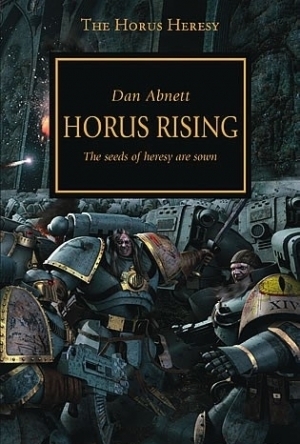
The Horus Heresy - Book 1: Horus Rising
Book
Horus Rising is a novel written by Dan Abnett and the first book in the Horus Heresy series. It also...
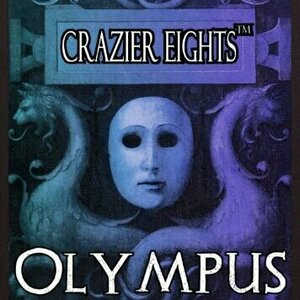
Crazier Eights: Olympus
Tabletop Game
A gateway fantasy card game in the world of Greek mythology with gods, heroes, and other aspects of...
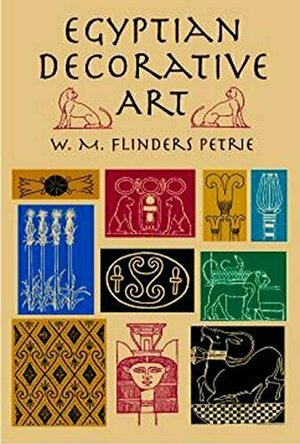
Egyptian Decorative Art
Book
Classic examination of the historical development of Egyptian decorative art, including the writing...
